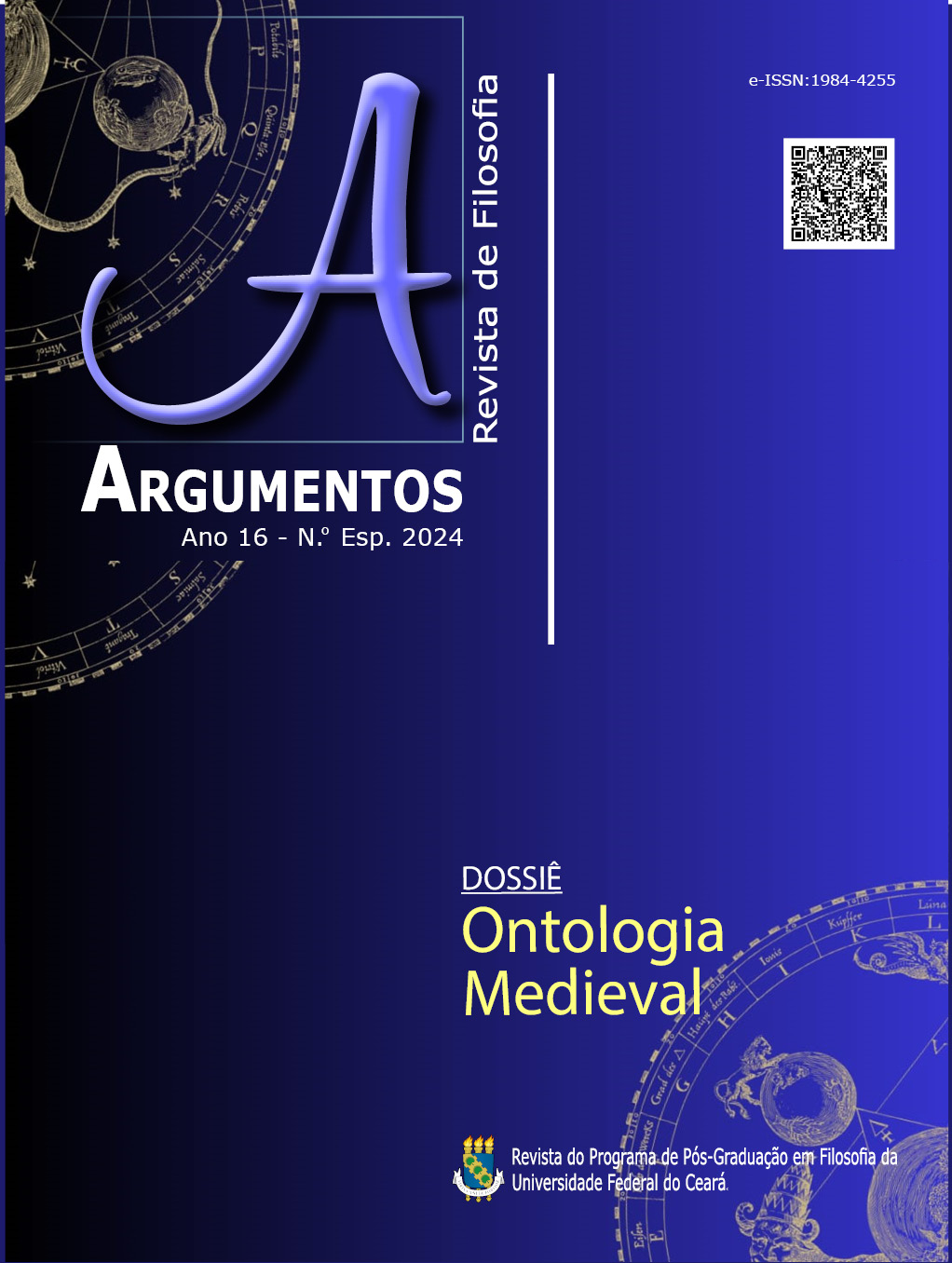O design tecnológico como prática: um olhar para além do instrumentalismo artefactual e da agência meramente humana
DOI:
https://doi.org/10.36517/Argumentos.16.esp.93717Keywords:
Tecnologia. Prática. Virtudes. Ética. Agência Moral.Abstract
O artigo parte da tese de que a criação ou design tecnológico não deve ser vista como uma atividade inteiramente determinada por critérios internos ao desenvolvimento dos artefatos, como se estes pudessem ter somente uma única e mesma forma e função, dependendo apenas de suas propriedades materiais. Como qualquer outra prática humana socialmente estabelecida, a criação ou o design tecnológico é uma ação humana e, como tal, sujeita a avaliações morais e políticas. Para esse propósito, adotamos a perspectiva neoaristotélica de Alasdair MacIntyre e seu conceito de prática, em que a dimensão normativa das práticas não é um dado exterior a elas aplicado, mas constitutivamente interno a partir de um telos que as define como partes ou formas de realização da excelência humana. Nesse sentido, o design tecnológico não é axiologicamente neutro, mas ontologicamente relacionado às determinações sociais e políticas vinculadas às ações humanas e suas diversas possibilidades de dever ser material e simbólico. Assim, é uma prática social portadora de fins e valores internos e externos a ela, no sentido macintyriano, não se compreendendo fora do tecido social do qual faz parte, portanto, carregando consigo elementos éticos e políticos constitutivos que, desconsiderados de sua constituição, obliteram a natureza complexa da tecnologia e suas implicações morais e políticas, desumanizando-a em sua totalidade.
Downloads
References
CARVALHO, H. B. A. de. Hans Jonas e o giro empírico da filosofia da tecnologia: notas para um diálogo com a pós-fenomenologia. Filosofia Unisinos, São Leopoldo, v. 21, 2020, p. 56-71.
CARVALHO, H. B. A. de. Tradição e racionalidade na filosofia de Alasdair MacIntyre. 2. ed. Teresina: EDUFPI, 2012.
CRARY, J. Terra arrasada: além da era digital, rumo a um mundo pós-capitalista. Rio de Janeiro: Ubu Editora, 2023.
EENBERG, A. Technosystem: the social life of reason. Cambridge: Harvard University Press, 2017.
HEIDEGGER, M. Ser e Tempo. Bilingual edition. Transl. Fausto Castilho. Campinas: Editora da Unicamp, 2012.
HEIDEGGER, M. The question concerning technology & Other essays. New York: Garland Publishing, 1977.
HORTON, J.; MENDUS, S. (Eds.). After MacIntyre. Critical perspectives on the work of Alasdair MacIntyre. London: Polity Press, 1994.
IHDE, D. Postphenomenology and technoscience: the peking lectures. Albany: State University of New York Press, 2009.
IHDE, D. Technology and the lifeworld: from garden to earth. Bloomington: Indiana University Press, 1990.
IHDE, D.; MALAFOURIS, L. Homo Faber revisited: postphenomenology and material engagement theory. Philosophy & Technology, v. 32, n. 2, 2019, p. 195-214.
JONAS, H. Técnica, medicina e ética: sobre a prática do princípio responsabilidade. São Paulo: Paulus, 2013.
JONAS, H. The imperative of responsibility: in search of an ethics for the technological age. Chicago: University of Chicago Press, 1984.
KIERKEGAARD, S. A. Diário de um sedutor. Temor e tremor. O desespero humano. Trad. Carlos Grifo, Maria José Marinho, Adolfo Casais Monteiro. São Paulo: Abril Cultural, 1979. (Col. Os Pensadores).
LATOUR, B. Morality and technology: the end of means. Theory, Culture and Society, v. 19, n. 5-6, 2002, p. 247-60.
LATOUR, B. On technical mediation: philosophy, sociology, genealogy. Common Knowledge, n. 3, 1994, p. 29-64.
LATOUR, B. Reagregando o social: uma introdução à teoria do ator-rede. Trad. Gilson César Cardoso de Sousa. Salvador: EDUFBA; Bauru: EDUSC, [2007] 2012.
MACINTYRE, A. After virtue: an essay in moral theory. 3. ed. Notre Dame: University of Notre Dame Press, [1981] 2007.
MACINTYRE, A. Dependent rational animals: why human beings need virtues. New York: Open Court Publishing, 1999.
SANTAELLA, L. Humanos hiper-híbridos: linguagens e cultura na segunda era da internet. São Paulo: Paulus, 2021.
SANTAELLA, L. (Org.). Simbioses do humano & tecnologias. São Paulo: Edusp; IEA-USP, 2022.
SRNICEK, N. Platform Capitalism. London: Polity Press, 2016.
VALLOR, S. Technology and the virtues: a philosophical guide to a future worth wanting. New York: Oxford University Press, 2016.
VAZ, H. C. L. Ética e Razão Moderna. Síntese Nova Fase, v. 22, n. 68, 1995, p. 53-85.
VERBEEK, P.-P. Moralizing technology: understanding and designing the morality of things. Chicago: The University of Chicago Press, 2011.
VERBEEK, P.-P. What things do: philosophical reflections on technology, agency, and design. University Park: Pennsylvania State University Press, 2005.
WALLACE-WELLS, D. A terra inabitável: uma história do futuro. São Paulo: Comp. das Letras, 2019.
Downloads
Published
How to Cite
Issue
Section
License
Copyright (c) 2024 Helder Buenos Aires de Carvalho

This work is licensed under a Creative Commons Attribution 4.0 International License.
Argumentos magazine is licensed under an International Creative Commons Attribution License.
The Magazine uses CC BY inclusion
1) The authors retain the copyright granted to the magazine or the right to initial publication, with the work regularly licensed under the Creative Commons Attribution, which allows the sharing of the work with acknowledgment of authorship and initial publication in this magazine.
2) The authors are authorized to contract additional applicable contracts, for non-exclusive distribution of the version of the work published in this journal (for example, publication in the institutional repository or as a chapter of the book), recognition of authorship and initial publication in this journal.
3) Authors are authorized and encourage to publish and distribute their work online (for example, in institutional repositories or on their personal pages) at any time before or during the editorial process, as they can generate productive changes, as well as increase the impact and reference of published work.




.jpg)










._._3.png)
1.jpg)
._._._.png)
